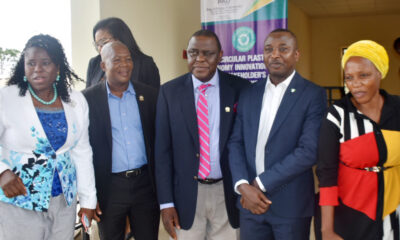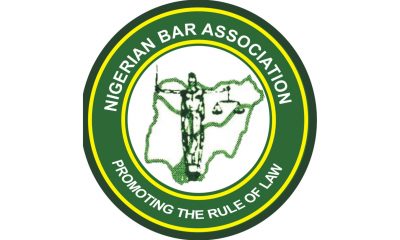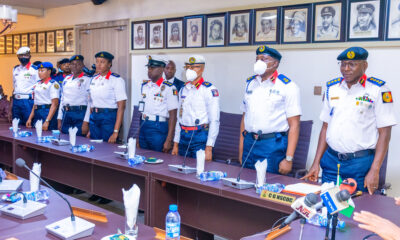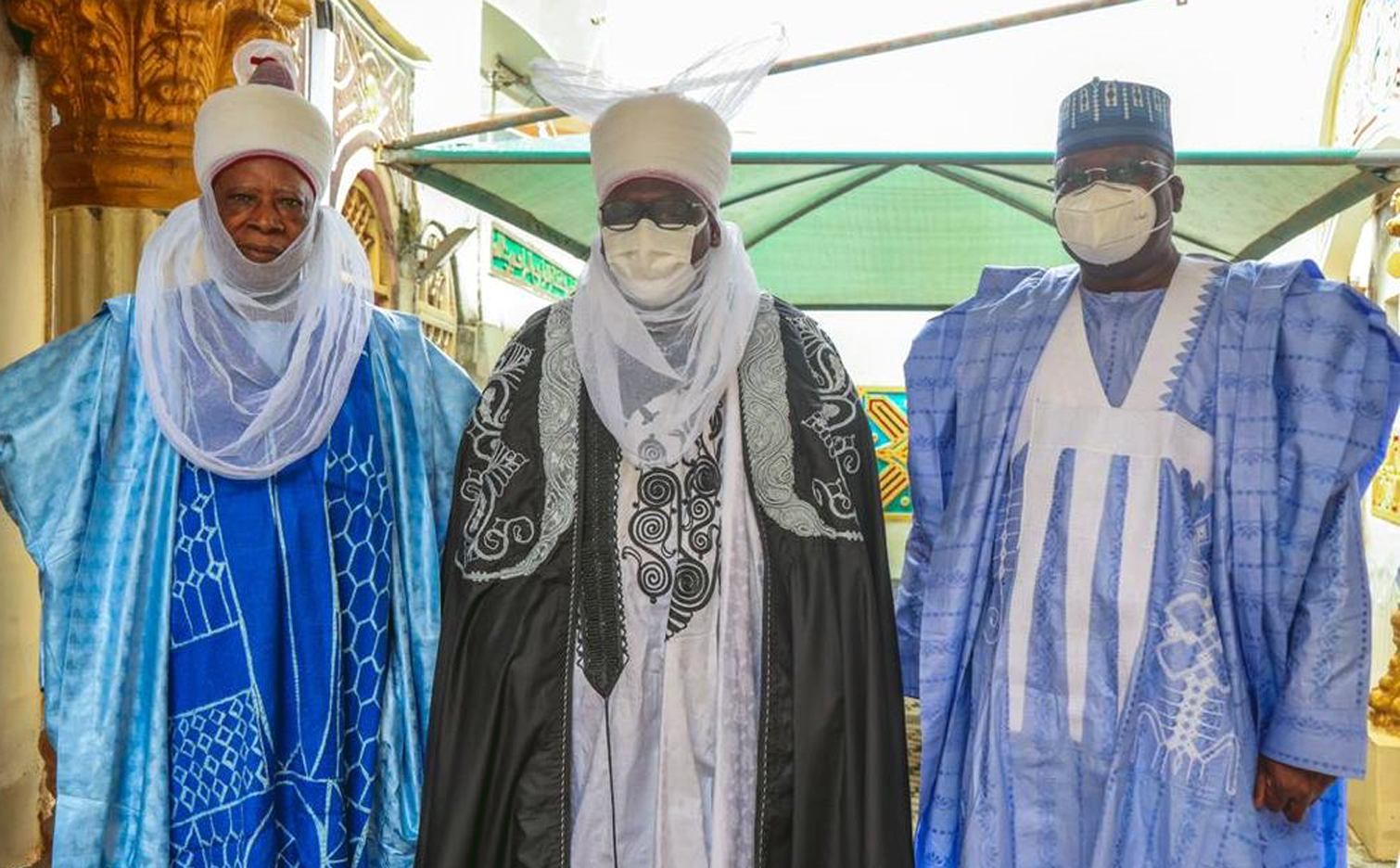Opinion
Electricity Tariff Increase: Problem Or Solution?

In some Nigerians’ typical way of making joke with the policy summersault that has characterised the current federal government and that has plunged the nation into the current unprecedented economic woes, a caller on a radio phone-in programme on the recent electricity tariff increase said, “shebi dem dey complain of meter by-passing, now dem go see fly-passing.”
Of course the act of energy theft through illegal connections, meter by pass, illicit meters and other means is condemnable. The Criminal Code, Penal Code, the Electric Power Sector Reform Act (EPSRA) and other federal and state laws criminalise the act. For instance, Section 1 (1) of the 2013 Nigerian Electricity Regulatory Commission (NERC) Electricity theft and other related offences regulations provides as follows:
“Any person who willfully and unlawfully taps, makes or causes to be made any connection with overhead, underground or under water lines or cables, or service wires, or service facilities of a licensee; or tampers with a meter, installs or uses a tampered meter, current reversing transformer, shorting or shunting wire, loop connection, receives electricity supply by by-passing a meter, or uses any other device or method which interferes with accurate or proper registration, calibration or metering of electric current or otherwise results in diversion in a manner whereby electricity is stolen or wasted; or damages or destroys an electric meter, apparatus, equipment, wire or conduit or causes or allows any of them to be so damaged or destroyed as to interfere with the proper or accurate metering of electricity, so as to abstract or consume electricity or knowingly use or receive the direct benefit of electric service through any of the acts mentioned in paragraphs (a), (b) and (c) or uses electricity for the purpose other than for which the usage of electricity was authorised, so as to abstract or consume or use electricity shall be guilty of an offence under Sections 383 and 400 of the Criminal Code, Sections 286 (2) of the Penal Code and Section 1 of this Regulation, and shall be punishable with terms of imprisonment as applicable, provided under Sections 390 of the Criminal Code, Section 287 of the Penal Code or Section 94 of the EPSR Act.”
But while the government focuses on dealing with anyone who commits the crime, a pertinent question that must be asked is, what are the factors that contribute to the prevalence of energy theft in the country? Is the hike in electricity tariff a problem or a solution?
The latest tariff hike according to the authorities affects consumers categorised under Band A. These consumers NERC disclosed, enjoy up to 20 hours of power supply will henceforth pay a tariff of N225 per kilowatt-hour, up from the previous rate of N68/kWh. Reason being that the government can no longer continue to subsidise electricity for this category of customers and decided to take them off subsidy so that the government can still manage to cope giving subsidies to those enjoying less hours of electricity.
According to NERC only 15 percent of the 12 million electricity consumers are affected. Those in the rural areas are not affected while those in the urban areas will be significantly affected. Incidentally, many places in the urban areas seem to now belong to Band A or have been on Band A without knowing it yet they do not enjoy the services that those in that category should enjoy.
I live in a neighbourhood that can hardly boast of 12 hours of power supply daily. After the tariff increase announcement, some of my neighbours bought electricity tokens and were shocked to discover that the Estate is on Band A. “I got 20.7 units for N5,000 which is approximately my household average daily consumption. Which means we will be spending about N150, 000: 00 every month on electricity minus the cost of fuel for the generator. This is unrealistic”, exclaimed one resident. Of course the Estate has approached NERC to seek for an appropriate categorisation.
We all know that the reason for the constant electricity tariff increase is to enable the investors to recoup their investment and make profit. The spokesman of the power distributors under the Association of Nigerian Electricity Distributors (ANED), Sunday Oduntan, stated during a recent television appearance that, “In every business, there’s the need for the businessman to be able to put money into business and recover the costs. Even when there is no profit, you need to recover your cost.”
But it is also a known business strategy to sell products with a low profit margin and make more sales than to insist on high profit margin and sell less. So, would it not make better sense for electricity to be sold at a more affordable rate which will guarantee more legal consumption than sky rocketing the price and have more people turn to illegal connections as a way to reduce their electricity costs?
In a couple of weeks, May 29 precisely, it will be one year since the controversial removal of fuel subsidy which has caused untold hardship to Nigerians and their businesses. Experts had warned that tampering with energy security would have a serious negative impact on the nation’s economy and the living standard of the people. However, the voices of those who claimed that fuel subsidy was bad and that it is corruption ridden and strikes down growth and profit were louder. See where the country is today.
And to think that Nigeria is again toiling with electricity subsidy? That may send the economy of the nation into a coma. The World Bank report released on April 9, 2024, ranked Nigeria (alongside Congo Democratic Republic) as the headquarters of extreme poverty in Africa. The National Bureau of Statistics (NBS) recently placed the inflation in the country at 31.7 per cent. The nation’s currency has collapsed.
The irony is that the federal government keeps assuring that efforts are being made to tackle the inflation and make life better for the citizens. Yet the same government keeps coming up with policies that will make no meaning of whatever that is being made. Did the government consider the number of businesses that will fold as a result of the electricity hike, the jobs that will be lost and the other consequences on the masses and the economy?
One therefore suggests that rather than hiking the electricity tariff and worsening the problem of energy and economic crisis in the country, the government should deal with the corruption within the energy sector. The issue of allowing individuals or businesses to operate illegally without facing consequences, officials taking bribes to overlook illegal connections or to avoid prosecution must be adequately tackled.
It is not enough to have the barrage of laws aimed at tackling energy theft and vandalism, Law enforcement agencies must wake up to their responsibility of enforcing these laws and ensuring that no defaulter goes unpunished no matter how highly placed. These agencies must be provided with the necessary resources and be motivated to address the issue effectively.
By: Calista Ezeaku
Opinion
Nigeria’s Poor Economy And High Unemployment Rates

Nigeria, often referred to as the “Giant of Africa”, is endowed with vast natural resources,
a large population and a youthful workforce.
Despite these advantages, the country faces persistent economic challenges, most notably high unemployment rates over the years. Successive governments remain a central issue contributing to poverty, social unrest, and underdevelopment. The economic wellbeing of a nation is significantly tied to her employment levels.
In Nigeria’s case, high unemployment has become a key driver of its poor economic performance affecting everything from productivity and income levels to crime and political instability.
Unemployment in Nigeria has assumed a multidimensional nature, characterised not just by joblessness but also underemployment, informal employment and precarious working conditions.
The Nigeria National Bureau of Statistic (NBS) said the youth with over 60 percent of Nigeria’s population under the age of 30 percent youth unemployment is a time bomb threatening the nation’s future.
Many graduates leave universities and polytechnics annually with little or no hope of securing decent jobs.
This structural unemployment is the result of a mismatch between skills and labour market needs, inadequate industrialisation, and a weak private sector.
Unemployment affects an economy in numerous direct and indirect ways.
In Nigeria, it leads to a reduced consumer base, when large sections of the population are not earning steady incomes, they have limited purchasing power which in turn affects the production and growth of businesses. Companies produce less, invest less and hire fewer people, leading to a vicious cycle of low economic growth.
Moreover, high unemployment translates to lower tax revenue for the government with fewer people paying taxes. The government has fewer resources to fund infrastructure, education, healthcare, and other public services that stimulate economic development.
This fiscal weakness forces Nigeria to rely heavily on foreign loans, which leads to rising debt levels and economic vulnerability.
Furthermore, infrastructure deficits including inadequate power supply, poor road networks and limited access to credit make it difficult for small and medium sized enterprises (SMEs) to thrive, yet SMEs are the bedrock of employment in many developed nations. Nigeria’s weak support for SMEs stifles innovation and job creation.
Another tragic consequence of high unemployment is the mass exodus of Nigerian talent to foreign countries in search of better opportunities. The brain drain weakens the country’s human capital base and deprives it of professionals who could contribute meaningfully to national development.
The “Japa” phenomenon-a slang used to describe young Nigerians fleeing the country reflects deep disillusionment with the system. Doctors, nurses, software engineers and other professionals are leaving in droves. The cost of training these individuals is absorbed by Nigeria, but their expertise benefits foreign economics. This dynamic further deepens the economic challenges as the country loses its best and brightest minds.
Addressing unemployment in Nigeria requires a multifaceted approach, first.
Secondly, industrialisation must be prioritised. The government should create an enabling environment for local manufacturing by improving infrastructure, reducing Bureaucratic bottlenecks and offering tax incentives reviving the agricultural sector with modern techniques and supply chains can also absorb a significant portion of the unemployed.
Thirdly, Governments at all levels must be held accountable for implementing job creation programmes transparently and effectively. Public-Private Partnerships (PPPs) should be encouraged to drive innovations and employment in ICT, renewable energy and logistics.
Finally, Nigeria must diversify its economy away from crude oil and invest in sectors that generate mass employment. Tourism, education, healthcare and creative industries such as film and music hold immense unlapped potential.
With genuine commitment from leaders, strong institutions and the active participation of the private sector and civil society, Nigeria can turn the tide on unemployment and chart a path toward sustainable economic prosperity.
Idorenyi, an intern with The Tide, is a student of Temple Gate Polytechnic
Abia State.
Biana Idorenyin
Opinion
Ending Malaria Menace For Improved Health

April 25 every year is World Malaria Day. It was instituted by the World Health Assembly in 2007, “to highlight the progress made in Malaria control, the ongoing challenges that persist and the urgent need for sustained investment and innovation”. This year’s theme, “Malaria Ends with Us: Reinvest, Reimagine and Reignite”, is apt considering the loss of lives incurred and money spent to treat and prevent Malaria. The theme is a clarion-call to intentionally end the malaria scourge through robust commitment of human and financial resources.
That is why one of the best policies, of the suspended Sir Siminalayi Fubara’s administration in Rivers State, was the avowed commitment to check the malaria menace and its multiplier consequences on the residents of the State, through its “Free Malaria Testing and Treatment” innovation.
Rivers State is a microcosm of Nigeria in terms of residents; thus the secularity of the State makes the programme’s beneficiary all-inclusive.
No doubt, the Rivers State Government has by this initiative reinforced value placement on the lives of the people, especially the less-privileged in the State. Residents in Rivers State can now be tested and treated free for Malaria in any Rivers State Government- owned hospitals and healthcare centres across the 23 Local Government Areas of Rivers State. This is a lofty and laudable programme because of the prohibitive cost of malaria drugs and conducting tests at a time majority of Nigerians hardly have a meal to eat, because of the prevailing economic hardship in the country.
Malaria and Typhoid, according to medical and health statisticians are the commonest ailments people suffer as a result of dirty environment, absence of good drainage, lack of potable water. The State Government’s Malaria programme is, therefore, not just a big financial relief but also a life-saver for the teeming poverty-ridden population of Nigeria resident in Rivers State.
According to statistics reeled out by the Federal Ministry of Health and Social Welfare, “Globally, there are an estimated 249million malaria cases and 608,000 malaria deaths among 85 countries”. Such reports leave much to be desired in a nation so blessed with natural resources and manpower. This is why the Rivers State Government should be commended for defying the huge financial implications to drive the lofty programme for Nigerians and foreigners in Rivers State who are availed the privilege of accessing the largesse in all State Government health and medical facilities.
As the Rivers State Government deemed it necessary to initiate the Free Malaria Testing and Treatment programme, nothing stops the Federal Government from doing the same. But even with abounding natural and human resources in unimaginable quantity in Nigeria, Malaria programmes are either grossly underfunded, or funds for the programmes are misappropriated or embezzled with impunity.
In Nigeria, malaria is one of the leading causes of death of children under the age of six and pregnant women. Malaria is a nightmare in Nigeria so much so that price of its drugs and treatment have skyrocketed like a phoenix and outrageously outside the reach of the teeming less privileged citizens of Nigeria. The situation was so alarming that the National Assembly, in 2023 urged the Federal Government to declare Malaria an emergency in Nigeria as a matter of urgent national interest. I am not sure that has been done by the Federal Government because it seems to be in the interest of the common citizens.
Experts have recommended new approaches to fighting the malaria epidemic in Nigeria which seems to have defied continuous attempts to reduce the Malaria burden in Nigeria to zero.
According to a Senior Associate at the John Hopkins Bloomberg School of Public.Health, Soji Adeyi, Nigeria should begin to increase internal funding.for malaria elimination.
According to him,, “Each year reliance on external funding needs to be reduced. I looked at the summary of Malaria reports from 2008 till now and what has been common is the complaint about the lack of funding. If this is a recurring problem, what should be done is to find a new approach “.
In his view, Abdu Muktar, National Coordinator of the Presidential Healthcare Initiative, called for the local production and manufacturing of medical supplies as well as reducing Nigeria’s dependence on drugs imports.
According to him, the local production of anti-malaria and.related.medication will consider.the peculiarity of the country’s terrain, population and burden and.would improve access to effective treatment.
For his part, the regional. Director of World Health Organisation (WHO), African Region, Matshiddiso Moretti, advised Nigeria to accelerate its efforts to end Malaria by relying on adequate data for the implementation of health policies.
Malaria is an epidemic more devastating than the dreaded HIV/AIDS. Malaria triggers high blood pressure and places HIV/AIDS patients on a critical condition. The Federal and sub-national governments should therefore declare Malaria an emergency and prioritise attention to its treatment, production and importation of drugs and vaccines to stem the malaria menace.
The Federal Government should also improve incentives and remuneration of medical and health workers to end their exodus abroad in droves, for greener pastures.
Igbiki Benibo
Opinion
Respecting The Traditional Institution
The traditional institution is as old as human society. It predates the advent of modern organised society. Before the emergence of modern justice system of dispute resolution and political system of administration, the traditional institution has existed long ago. In fact, it was so revered and regarded as sacred because of the mythological conviction that it was the “stool of the ancestors”. Consequently, judgment given was deified as many people especially the traditionalists believe it was the mind of the gods revealed. Perversion of justice , in the pre-modern justice system was alien and considered uncommon. Chiefs and traditional rulers though may not have generated knowledge formally (through the four walls of a classroom), yet they embody and exemplify knowledge. They hold fast the virtue of integrity and honour, fairness and relative impartiality, partly because they believed that the stool they occupy was ancestral and traditional as act of indiscretion can court the wrath of the gods at whose behest they are on the traditional saddle of authority.
The Compass of Life stated unequivocally that “the throne is preserved by righteousness”. Where righteousness, integrity and honesty are savoured,and valued, perversion and miscarriage of justice is an anomaly. The judgments of traditional rulers and chiefs were hardly appealed against because they were founded on objectivity, fairness, truth and facts beyond primordial sentiment and inordinate interests or pecuniary benefits. Judgments were precedent. Traditional rulers and chiefs, therefore carved a niche for themselves, earning the respect of, and endearing themselves to the heart of their subjects. Is it the same today? Some traditional rulers and chiefs are administering their communities in exile; they are diasporic leaders because they have lost the confidence of the people through self-serving, raising of cult group for self-preservation, land grabbing and other flagrant corrupt practices.
When truth is not found in the traditional institution that, in my considered view, constitutes the grassroots government, then crisis is inevitable.In most African societies before advent of the Christian Faith, and consequent Christening of the traditional stools in many communities in recent times, ascent to the traditional institution was a function of a traditional method of selection. It was believed that the gods make the selection. And whoever emerges from the divination processes eventually is crowned as the king of the people after performing the associated rituals.Whoever lacked the legitimacy to sit on the throne but wanted to take it forcefully, traditionalists believed died mysteriously or untimely. Traditional rulers wielded much influence and power because of the authority inherent in the stool, the age of the person designated for the stool notwithstanding. The word of the king was a law, embodied power. Kings so selected are forthright, accountable, transparent, men of integrity, did not speak from both sides of the mouth, could not be induced with pecuniary benefits to pervert justice, they feared the gods of their ancestors and were consecrated holistically for the purpose dictated by the pre and post coronation rituals.
Some of those crowned king were very young in those days, but they ruled the people well with the fear of the gods. There was no contention over who is qualified to sit or who is not qualified to. It was the prerogative of the gods. And it was so believed and upheld with fear.Kings were natural rulers, so they remained untouchable and could not be removed by a political government. If a king committed an offence he was arrested and prosecuted according to the provision of the law. But they have immunity from sack or being dethroned because they are not political appointees. However, the people at whose behest he became king reserved the power to remove him if found guilty of violating oath of stool. The traditional institution is actually the system of governance nearest to the people. And kings were the chief security officers of their communities. So indispensable are the roles of kings and traditional rulers to the peaceful co-existence of their people, ensuring that government policies and Programmes were seamlessly spread to the people that many people are clamouring for the inclusion of definite and specific roles in the Constitution for the traditional institution.
Traditional rulers are fathers to every member of their domain. So they are not expected to discriminate, show favouritism. By their fatherly position traditional rulers, though can not be apolitical, are also expected to be immune from partisan politics. This is because as one who presides over a great house where people of different political divide or interest belong, an open interest for a political party means ostracisation of other members of the family which could lead to disrespect, conflict of interest, wrangling and anarchy. Traditional rulers are supposed to be selfless, preferring the interest of their people above their personal interests following the consciousness that they are stewards whose emergence remains the prerogative of the people. The position is essentially for service and not for personal aggrandisement and ego massaging. So they should hold the resources of the people in trust. However, in recent past the traditional institution has suffered denigration because of unnecessary emotional attachment to political parties and political leaders. Some traditional rulers and kings have shown complete disregard to the principle of neutrality because of filthy lucre and pecuniary gains, at the expense of the stool and people they lead. Sadly some traditional rulers have been influenced to pervert justice: giving justice to the offender who is rich against the poor.
Traditional leaders should be reminded that the “throne is preserved by righteousness”, not by political chauvinism, favouritism, or materialism.Traditional rulers should earn their deserved respect from political leaders by refusing the pressure to be subservient, beggarly, sycophantic and docile. Traditional leaders have natural and permanent leadership system, unlike the political leadership that is transient and tenured.They should be partners with every administration in power and should not be tied to the apron string of past leaders whose activities are aversive to the incumbent administration and thereby constituting a clog in the development of the State and the community they are to woo infrastructure development to. It is unpardonable error for a traditional ruler to have his conscience mortgaged for benefits he gets inordinately from any government.It is necessary to encourage kings and traditional rulers to not play the roles of stooges and clowns for the privileged few, political leaders. Political leaders are products of the people, even as every government derives its legitimacy from the people.
No doubt, the roles of traditional rulers are so necessary that no political or military government can operate to their exclusion. This is why the 10th National Assembly mulled the inclusion of Traditional institution in the proposed amendment of the Constitution of the Federal Republic of Nigeria.Traditional rulers and chiefs should, therefore, be and seen to be truthful, forthright, bold, courageous, honest and people of integrity, not evasive, cunning, unnecessarily diplomatic and economical with truth.The time to restore the dignity of the traditional institution is now but it must be earned by the virtuous disposition of traditional rulers and chiefs.
Igbiki Benibo
-
Niger Delta3 days ago
Diri Recommits To Support For Security Agencies …Cautions AIG, Sacks Youth Exco
-

 Nation3 days ago
Nation3 days agoOgun, Nike Art Gallery Set To Transform Olumo Rock
-
Social/Kiddies3 days ago
Need For Girl-Child Education In Society
-

 News2 days ago
News2 days agoNBA President Sues For Workers’ Protection, Better Wage
-
Politics3 days ago
Gunmen Disrupt Political Rally In Bayelsa ….As Turnah, Others Emerge New Associates’Leaders
-

 Rivers3 days ago
Rivers3 days agoSecurity Agencies Engage Rivers Communities On Pipeline Protection
-

 Nation3 days ago
Nation3 days agoNasarawa Varsity Student Commits Suicide
-
Business3 days ago
Smuggled Rice Tops Seized Items List In 2025

